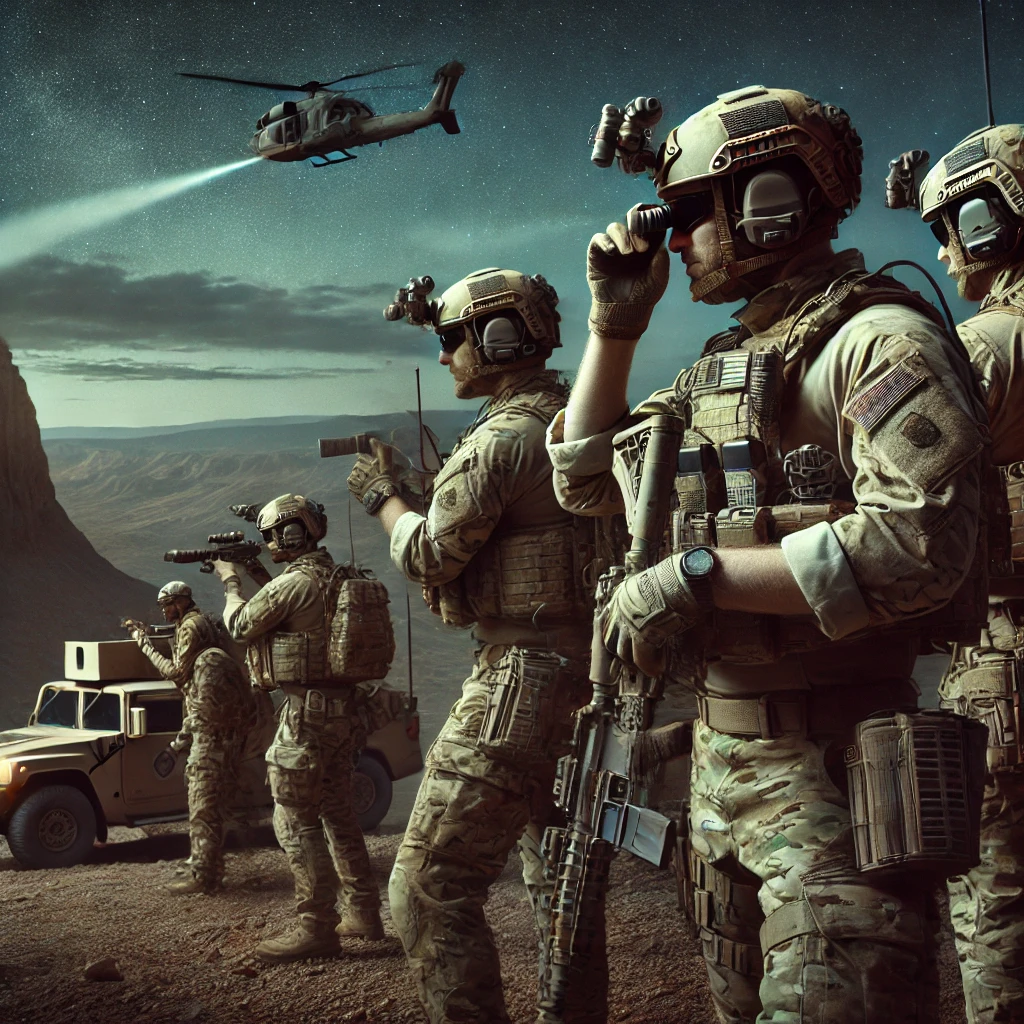Joint Special Operations Command (JSOC)

Seymour Hersh, a Pulitzer Prize-winning journalist, first raised his allegations about the Joint Special Operations Command (JSOC) operating as an elite military squad during a public speech at the University of Minnesota in March 2009. Hersh claimed that JSOC, under the direction of Dick Cheney during the Bush administration, operated without Congressional oversight. According to Hersh, JSOC operated as an elite unit without formal oversight from Congress. This shadowy unit included special forces like Navy SEALs and Delta Force. One of Hersh’s main claims was that Cheney utilized JSOC to conduct operations in several countries, bypassing legal frameworks and even international diplomatic channels.
These revelations have sparked ongoing discussions about the broader implications of Cheney’s control over JSOC and whether this secretive unit was also involved in classified UFO programs. While specific connections to UFO programs haven’t been publicly detailed, the allegations of Cheney’s misuse of military assets for covert operations highlight the potential for classified programs to be shielded from public and congressional scrutiny. This narrative ties into broader concerns about transparency and oversight of U.S. intelligence and military activities.
In 2004, a reported clash occurred between Lockheed Martin’s secret alien recovery program and the Joint Special Operations Command (JSOC) over a crash in Nevada. JSOC allegedly mistook a Lockheed Alien Reproduction Vehicle (ARV) for extraterrestrial technology, leading to a deadly firefight that resulted in the loss of two JSOC members. Lockheed’s covert operations were said to involve advanced alien technology, hidden from both the government and military, raising questions about transparency and national security.
The Joint Special Operations Command (JSOC) alongside other government agencies like the Department of Energy (DoE), has played a role in retrieving and securing unidentified aerial phenomena (UAP) or UFO crash sites.
In a Congressional Oversight Committee hearing, Representative Anna Paulina Luna confronted Energy Secretary Jennifer Granholm regarding the Department of Energy’s (DoE) security measures to address drone incursions over its nuclear facilities, including past incidents such as one at the Lawrence Livermore National Laboratory in 2021. Luna highlighted concerns over these incursions and pushed for answers regarding the DoE’s protocols for handling unauthorized drone activity and potential Unidentified Aerial Phenomena (UAP) sightings. Secretary Granholm confirmed that the DoE has a robust counter-drone program to protect national security sites but refrained from discussing specific details in a public forum.
Luna further pressed Granholm on the DoE’s possible involvement in reverse-engineering technologies recovered from UAPs, referencing the Pentagon’s Kona Blue Program, a proposed initiative aimed at reverse-engineering such technologies. Granholm denied having any knowledge of the department’s involvement in such efforts. The discussion also touched on historical sightings of metallic spheres over DoE facilities, with Luna suggesting the DoE consider expanding its current program to address UAPs more effectively.
Additionally, Luna questioned whether the DoE coordinates with the Department of Defense (DoD) and the All-domain Anomaly Resolution Office (AARO) to investigate UAP sightings. Granholm acknowledged that the DoE works closely with the DoD on national security matters due to its nuclear mission but did not provide specifics on joint investigations. When asked whether the DoE collaborates with JSOC (Joint Special Operations Command) for security measures, Granholm confirmed that it does, though she did not elaborate further on the nature of this collaboration.
George W. Bush served two consecutive terms as the 43rd President of the United States. His first term began on January 20, 2001, after a highly contentious election against Al Gore. Bush’s first term was notably shaped by the September 11, 2001 terrorist attacks and the subsequent launch of the War on Terror, which included military operations in Afghanistan and Iraq. He was re-elected in 2004, defeating Democratic candidate John Kerry, and served a second term from January 20, 2005, to January 20, 2009.
Dick Cheney served as Vice President during both of Bush’s terms, from January 20, 2001, to January 20, 2009. Cheney played an exceptionally powerful role in the administration, particularly in shaping foreign policy and national security decisions. He was a key figure in the Iraq War and was involved in significant, and at times controversial, decisions related to intelligence and counterterrorism, such as the use of enhanced interrogation techniques. His influence and actions during these years cemented his legacy as one of the most influential vice presidents in U.S. history.
Before serving as Vice President, Dick Cheney held several prominent roles in the U.S. government, working under the administrations of Richard Nixon, Gerald Ford, and George H.W. Bush. Cheney’s political career first gained significant momentum when he became White House Chief of Staff under President Gerald Ford from November 21, 1975, to January 20, 1977. At just 34 years old, Cheney was one of the youngest individuals to hold this position, where he played a crucial role in managing the administration during Ford’s final years in office. Following this, Cheney was elected to the U.S. House of Representatives from Wyoming, serving five terms from January 3, 1979, to March 20, 1989. In Congress, Cheney was recognized for his conservative views and leadership roles, including his time as House Minority Whip.
After his congressional career, Cheney served as Secretary of Defense under President George H.W. Bush from March 20, 1989, to January 20, 1993. His tenure was marked by major military engagements, most notably the Gulf War in 1991. Cheney’s effective management of U.S. forces during this conflict earned him widespread respect for his strategic oversight. These roles, especially his time as Secretary of Defense, solidified Cheney’s reputation as a key figure in U.S. defense and foreign policy, well before he assumed the vice presidency under George W. Bush.


